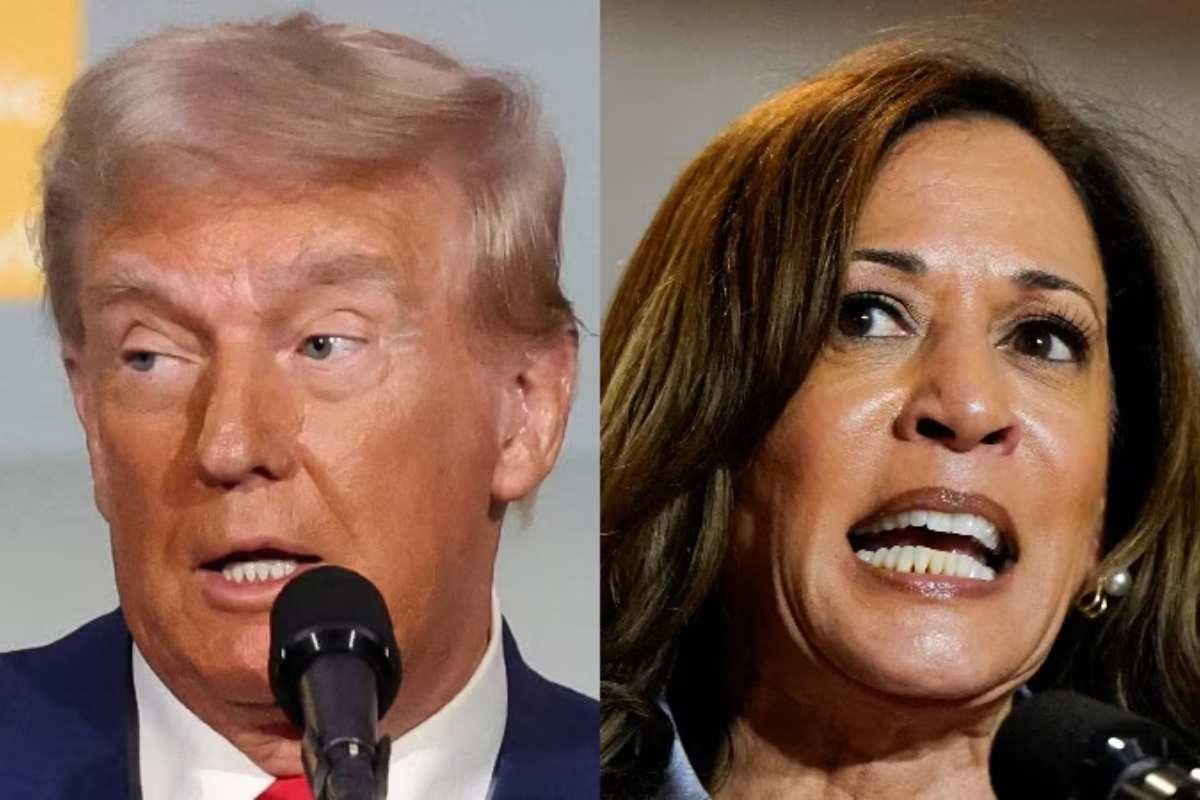Source – abc.net.au
The political landscape is set for a significant moment this week as Vice President Kamala Harris and former President Donald Trump prepare for their first direct confrontation in a highly anticipated debate. The event, scheduled for Tuesday night at the National Constitution Center in Philadelphia, is crucial for both candidates, who are engaged in a tight race. For Harris, this debate represents a vital opportunity to define herself in the eyes of voters and maintain the momentum she has built since becoming the Democratic nominee earlier this year.
Harris aims to use this platform to demonstrate her readiness to assume the presidency, a question that looms large for voters as the fall campaign heats up. Speaking in Pittsburgh over the weekend, she emphasized the need for unity and a fresh direction for the country, stating, “It’s time to turn the page on the divisiveness. It’s time to bring our country together, and chart a new way forward.”
Trump, on the other hand, is eager to cast doubt on Harris’s qualifications and halt the progress she has made since her nomination. He continues to portray himself as a change agent, contrasting his vision with Harris’s association with the Biden administration, which he blames for economic challenges like inflation and higher mortgage rates. As both candidates vie for the upper hand, the debate is poised to shape voter perceptions and potentially alter the course of the election.
Debate Dynamics and Challenges
The debate, moderated by ABC News anchors Linsey Davis and David Muir, will last 90 minutes and follow a format where candidates’ microphones are muted except when it’s their turn to speak. This format, agreed upon by both campaigns, has sparked frustration within the Harris camp. Harris, known for her prosecutorial background, hoped to leverage her skills in a more interactive debate setting. In a letter to ABC News, her campaign expressed concerns that the format would shield Trump from direct exchanges, potentially disadvantaging Harris.
As the candidates prepare for this critical encounter, Harris’s team has been closely studying Trump’s past debate performances, particularly his interactions with Hillary Clinton in 2016 and Joe Biden in 2020. Harris has been immersed in preparation, holding mock debates and reviewing Trump’s previous statements and tactics. Her goal is not only to stand up to Trump but also to present a case for moving the nation beyond the Trump era. Any racial taunts or attacks from Trump are expected to be met with a dismissive response, as Harris seeks to distance herself from the divisive rhetoric that has characterized much of the former president’s campaign.
How Kamala Harris is preparing to debate Donald Trump
The Path Forward
The outcome of this debate could have significant implications for both campaigns as they head into the final stretch before early voting begins in several key states. The race remains close, with polls showing a deadlock in battleground states such as Pennsylvania and Georgia. A recent CNN poll highlighted the importance of these states, suggesting that Trump could secure a path to victory if he wins in North Carolina, Pennsylvania, and Georgia.
Kamala Harris received a boost in confidence late last week when her campaign announced a substantial fundraising lead over Trump, with $404 million in cash reserves compared to Trump’s $295 million. However, a Sunday poll from The New York Times and Siena College underscored the challenges Harris faces in defining herself to voters. While 61% of likely voters expressed a desire for a significant change from the Biden administration, only 25% believed Harris represented such a change, compared to 53% who saw Donald Trump as the change agent.
As the debate approaches, Kamala Harris remains focused on her strategy to confront Donald Trump head-on, emphasizing the need for new leadership and unity. Her preparation reflects a deep commitment to presenting herself as the candidate capable of leading the country forward, beyond the divisiveness of the past. Whether she can successfully convey this message on the debate stage may well determine the trajectory of her campaign in the critical weeks ahead.









